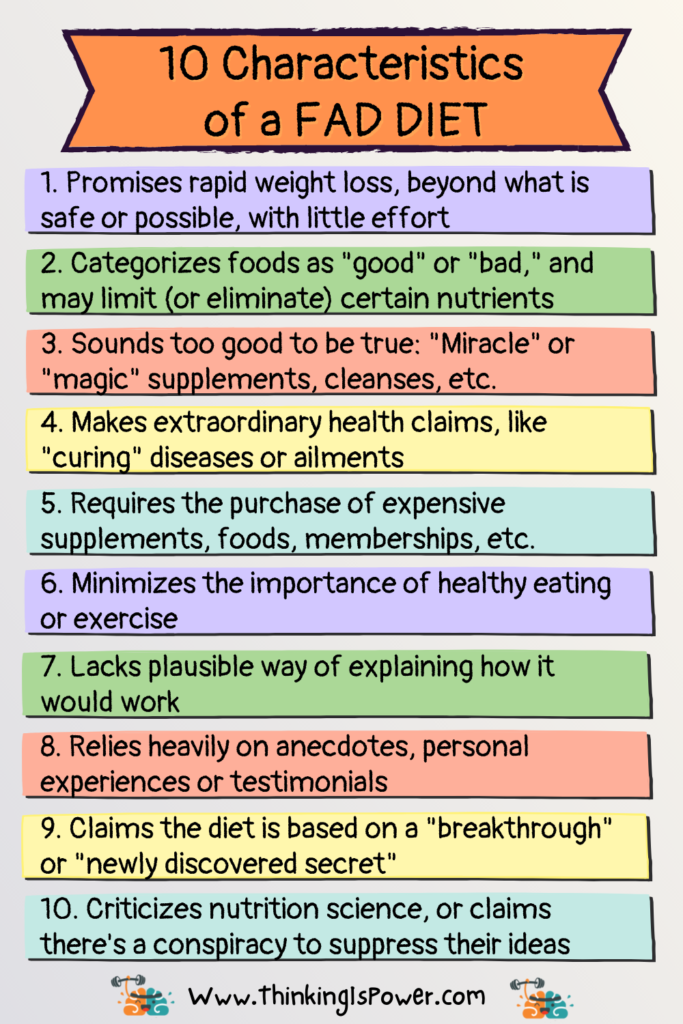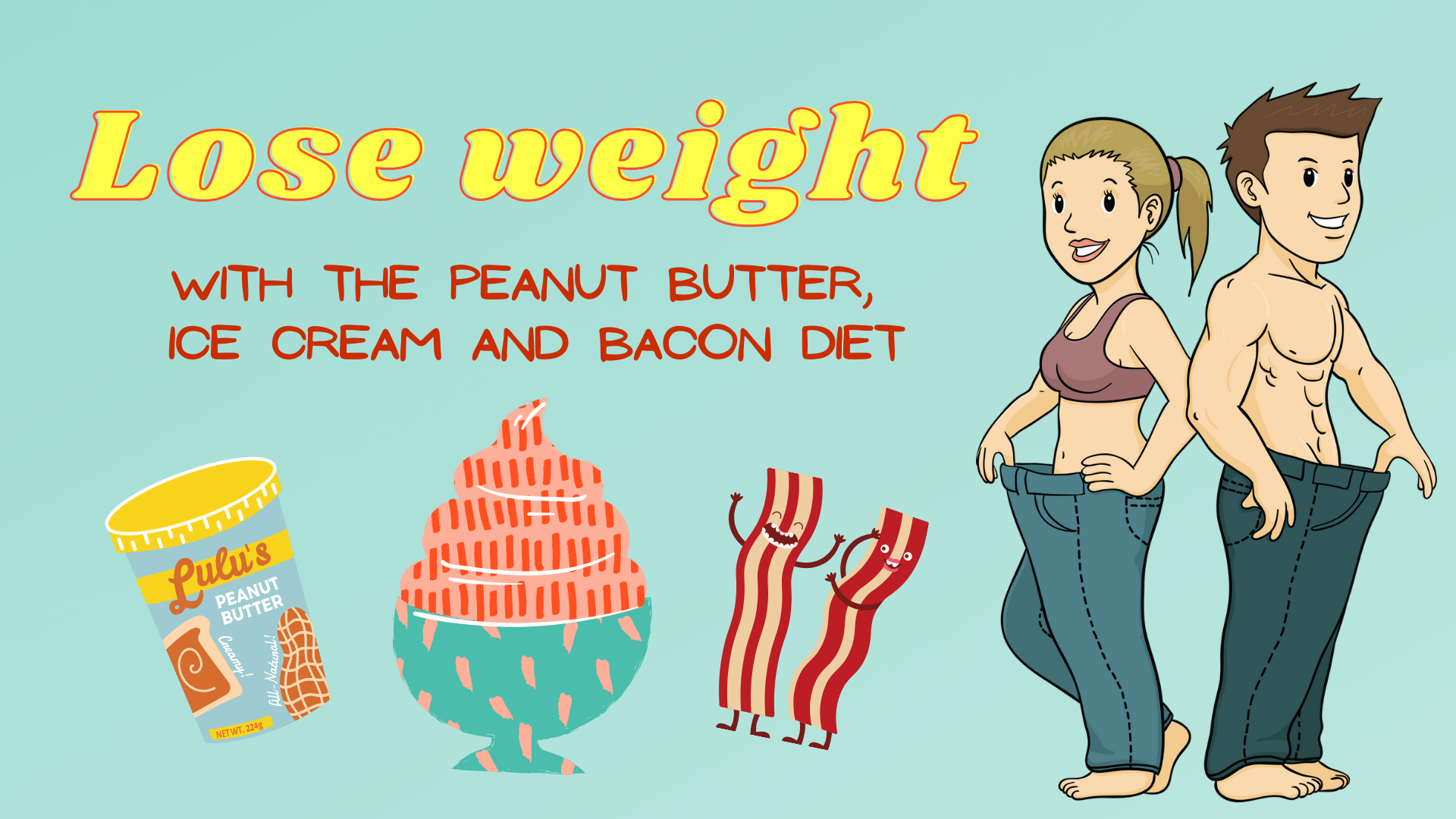Eat all of your favorite foods AND lose weight on the Keto Diet!
Improve your health at the cellular level with Herbalife!
Reset your metabolism with Dr. Oz’s foolproof tips!
Detoxify your body with the Master Cleanse!
We’ve all seen the claims and maybe even tried the diets. Americans spent $72 billion on weight loss products and services in 2019 and yet we’re bigger than ever. Even worse, we feel like failures.
The problem is, nutrition advice is ubiquitous, seemingly contradictory, and often not in-line with science… like a Choose Your Own Adventure diet plan. And the booming fad diet industry promises fast, easy, miraculous weight loss if we only buy their pill/book/plan.
In addition, modern society promotes weight gain. Unhealthy, calorie-dense food is abundant and cheap, and our car-dependent infrastructure limits everyday movements. Obesity is now one of the leading causes of preventable death in the U.S.
The good new is that we can take control of our health by eating a balanced diet and maintaining a healthy weight.
Enter the fad diet
Fad diets come in many flavors. (See what I did there?)
There’s no single definition of a fad diet, other than popularity, but they often promise rapid weight loss or make extraordinary health claims, and require the purchase of a product or service. And some fad diets are worse than others.


To spot a fad diet, watch out for the following red flags, many of which are characteristics of pseudoscience:
- Promises rapid weight loss with little effort. Be especially wary of diets that promise or promote loss of more than two pounds per week.
- Categorizes foods as “good” or “bad,” and may limit (or eliminate) certain nutrients. For example, carbs aren’t inherently bad, and neither are fats. Our bodies need them for energy and nutrients. However, not all carbs or fats are created equal… So be wary of a diet that oversimplifies and demonizes certain nutrients.
- Sounds too good to be true, such as “miracle” diets, pills, or certain combinations of foods. Remember, if it sounds too good to be true, it probably is. Unfortunately, there are no secret short-cuts to healthy eating.
- Makes extraordinary health claims. Some diets even claim to “cure” ailments, from arthritis to dementia to cancer. These can be among the more dangerous fad diets.
- Requires the purchase of expensive supplements, certain foods, memberships, etc. For many fad diets, this is the point!
- Minimizes healthy eating or exercise. Be wary of diets that minimize the importance of a balanced diet that provides essential nutrients. And exercise isn’t a weight-loss plan, but it is essential for good health.
- Lacks plausibility. Essentially, do the diet’s claims make sense? For example, proponents of the alkaline diet claim that eating foods with a high pH increases the pH of your blood, protecting from illnesses, even cancer. However, different parts of our bodies have different pH levels (e.g. the stomach has a pH of 2-3.5, which is highly acidic; blood has a pH of 7.35-7.45, which is slightly basic). These pH levels are tightly regulated by the body, and a deviation in the blood’s pH can be fatal. And, most importantly for the purposes of the alkaline diet, the food we eat does not impact the blood’s pH.
- Relies heavily on testimonials. Anecdotes aren’t good evidence. Who knows why someone lost weight… was it the diet? Or did they stop eating processed foods? Or start exercising? The people boasting about their weight loss on social media may have been one of the lucky ones, but very few post their failures online for the world to see. We almost never hear from those who went on the diet and didn’t lose weight.
- Claims the diet is based on a “scientific breakthrough” or “newly discovered secret.” Science demands evidence, and that evidence has to be available to other scientists. What we know about weight loss today is the culmination of decades of research. In the unlikely event there’s a “breakthrough” in weight loss science, the scientific community would be abuzz about it.
- Criticizes nutrition science, or even claims there’s a conspiracy. Science is a process of evaluating evidence as a community. Claims must be peer-reviewed and withstand constant attempts to prove them wrong. So when experts reach a consensus, it’s a big deal. However, charlatans whose claims cannot pass peer review will instead go straight to the media, by writing a book, going on TV programs, or pushing their products through influencers. They may even claim there’s a conspiracy against them. Unfortunately, the public often doesn’t understand the difference.
Different fad diets may claim to have found “the solution” to weight loss. But there’s no “magic” involved. They haven’t discovered a “secret.” No matter the permutation, fad diets share one essential characteristic. They “work” because they find a way to cut calories. That’s it.
But I lost weight and felt better on the diet!
This may be true. But let’s unpack this a bit.
Rapid initial weight loss is usually water, not fat. And any diet that restricts calories will result in weight loss.
But maintaining a healthy weight is a lifelong endeavor, and fad diets are temporary solutions. They’re hard to stick to, so once the diet is stopped, the weight usually comes right back. As my wise mother says, if a diet worked, we wouldn’t have to keep trying new ones!
There are many reasons someone would feel better on a fad diet. Maybe the diet did have good aspects, such as removing processed foods or sugary drinks. Perhaps it was the weight loss. And it’s possible it’s a placebo effect… essentially, we feel better because we expect to feel better.
Remember, though, that neither the weight loss nor feeling better are because of the “secrets” or “magic” of the fad diet.
In addition, there’s more to health than weight, and many fad diets limit or omit foods that contain vital nutrients, or encourage consumption of unhealthy foods.
The peanut butter ice cream and bacon diet!!!
Allow me to illustrate my point with a silly example, using two of my favorite foods. On this diet, you are allowed to consume unlimited quantities of peanut butter ice cream and bacon, but nothing else.
Now, there are a LOT of calories in peanut butter ice cream and bacon. However, even though I LOVE both of these foods, there’s only so much ice cream and bacon a girl can eat… which would reduce the amount of calories I eat and result in weight loss.
I hope you see the problem, though. What an incredibly unhealthy diet! And when I get tired of eating peanut butter ice cream and bacon, I’ll gain the weight right back.
Nutrition research is really complicated
To test the effectiveness of a new drug, researchers use double-blinded randomized controlled trials, in which subjects are randomly divided into groups and given either the treatment or a placebo. Only if the drug significantly outperforms the placebo can we conclude that it works.
Now let’s pretend for a moment that we want to design a study to test the health impacts of eating red meat. See the problem? People don’t like having their diets controlled, especially for any length of time, so they probably won’t stick to it. And what would placebo meat even look like?
Because of these limitations, nutrition research has to be done in other ways, and this is important because the studies provide lower quality evidence. Some research is done on non-human animals. Research funded by industry skews in their favor. And a lot of nutrition studies involve food diaries, relying on people’s memory of what (and how much) they ate. Therefore, when evaluating the claims of a new study, it’s important to keep in mind how the study was conducted.
It gets even worse when studies are covered in the media. News reports often neglect to explain how studies are conducted and overstate the conclusions we can draw from them. They over-report novel findings, making it seem like scientists are “always changing their minds.” And they top it off with a sensationalized headline, which is often the only part we read and share.
In this environment, pseudoscience and misinformation flourish. And unfortunately, we end up being misled and unable to make good decisions. So remember, a single study, no matter how good its design, is only a piece of a bigger puzzle. The overall body of evidence is much more reliable than any individual study.
That doesn’t mean we don’t know anything
Despite the limitations of nutrition research, and the seemingly shifty headlines, there’s actually quite a bit of consensus in a few key areas.
For optimal health:
- Eat more plants, such as fruits and vegetables, nuts, legumes, and whole grains.
- Eat less meat, especially red and processed meats.
- Eat fewer processed foods, which often have added sugars, are high in sodium, are low in fiber, and contain trans fats.
- Limit added sugars.
- Focus on healthy fats and carbs. Healthy fats include unsaturated oils from plants and fish; in contrast, limit saturated fats, and eliminate trans fats. Unlike processed carbs, healthy complex carbs from whole plants contain fiber and important micronutrients.
- Exercise. Keep in mind that, while exercise has a plethora of health benefits, it is not a weight loss strategy.
- Maintain a healthy weight.
There’s no quick fix. Maintaining good health requires establishing and maintaining healthy habits. And modern society is conspiring against us.
So it’s easy to see why people resort to fad diets. But for the sake of your own health, and your wallet, learn how to spot a fad diet and instead establish lifelong healthy habits.
The take-home message
Eating well and maintaining a healthy weight are excellent ways to take control of our health. But there’s no short-cut. The best diet is one you can stick to. In short, eat a balanced diet, preferably one full of whole, unprocessed plants. Don’t eat too much. And exercise!
There are a lot of diet claims out there. It can be truly overwhelming. Critical thinking is a vaccine against misinformation and those that would seek to take advantage of us. So instead of resolving to lose weight with another fad diet, empower yourself with better thinking.
To learn more
SciShow: Why nutrition studies keep contradicting each other
Vox: I asked 8 nutrition research why the science of nutrition is so messy
NBC: What science says about the best way to eat (and why we’re still figuring out)
Thanks to Lynnie Bruce and Glenda Trecek for their feedback.

Very effective information for all. Thanks for sharing.
Thanks for the kind words!